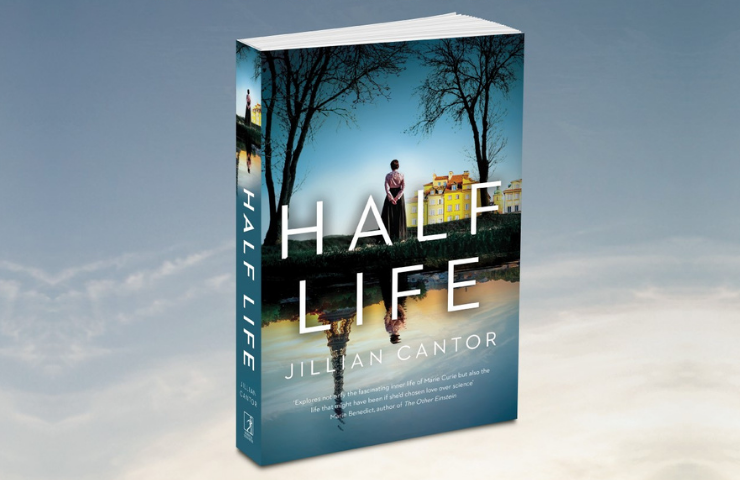Plus get our latest book recommendations, author news, and competitions right to your inbox.
BOOK CLUB QUESTIONS
*** WARNING: SPOLIERS AHEAD ***
You have a choice. There is always a choice. This refrain is echoed throughout the book, both by Marya and Marie. Do you agree or disagree with this sentiment? Do you believe Marya and Marie both truly have choices? Why or why not?
Marya’s life splits into two versions in 1891 when she makes one simple choice: She decides to get on the train to Paris to further her education. Or she stays in Poland and marries Kaz. What do you believe is the greatest impact of this one choice on Marya’s life? On Marie’s? What about on the world as a whole? On science?
Compare and contrast the circumstances and opportunity for Marya in Poland and Marie in Paris. How much do you think environment and opportunity for the women shapes each one of their lives? Which one do you believe ultimately lives a better life?
Marya and Marie are technically the same person, and yet many of their choices and actions diverge in different ways throughout the novel. Discuss the ways in which their characters are ultimately similar. Different?
Both Marie and Marya have an important relationship with Pierre Curie. How does the scope of Pierre’s life, and work, change in each woman’s story? What is the importance of Pierre as a character throughout the novel? What is most important in Marie’s life: love or science? What about in Marya’s? Which woman has the better love story? Which woman made the greatest contribution to science?
Both Marie and Marya say, “My body was not built to carry a baby.” But how is pregnancy ultimately different for each of them, based upon their circumstances? Who becomes a better mother, Marya or Marie? How and why does Klara turn out differently than Irene and Ève?
In Marie’s storyline, Leokadia marries Kaz but gives up her piano career. In Marya’s, Leokadia pursues piano professionally and never marries, but she is still drawn to Kaz. Which life is a better life for her? Why do you think she still finds her way to Kaz in both storylines?
Near the end, Marya clings to her sisters’ hands and says they are "three old women, forever connected to one another by blood and by love. And yes, by science, too." Marie is similarly connected to her sisters at the end of her life. But Bronia’s and Hela’s lives turn out drastically different in the two storylines. Compare and contrast their lives in both stories. Which storyline is better for Bronia? For Hela? How do Marya’s actions irrevocably change her sisters’ lives, in ways both good and bad?
From Poland to Paris to the rocky cliffs of Brittany to the front lines of World War I—what role does setting play in the novel? How does the setting help inform and shape Marya’s life differently from Marie’s?
In the very end, Ève plays piano for Marie and Klara plays it for Marya. What role does music play both here and throughout the book? How is the piano both different and the same for Marie and for Marya?
The book opens and closes with Marie on her deathbed, examining the choices she made in her personal life: love, marriage, education, motherhood. But in the very end she thinks that radium is everything, the only thing. What do you think she means by this? What is the importance of radium in both Marie’s life and her death? How is this different in Marya’s story?
Marya thinks that half-life is such a funny term, so unscientific. While Marie thinks in the end that the half-life of radium is 1,600 years, that her radium will long outlive her. Why is the novel called Half Life? Discuss both the scientific and personal significance of that term for Marya and for Marie.
A brilliant sliding-doors reimagining of the passionate life of the first woman to win a Nobel Prize – and the life Marie Curie might have led if she had chosen love over science.
Poland, 1891. Marie Curie (then Marya Sklodowska) was engaged to a budding mathematician, Kazimierz Zorawski. But when his mother insisted Marya was not good enough, he broke off the engagement. A heartbroken Marya left Poland for Paris to study chemistry and physics at the Sorbonne. Marie would go on to change the course of science forever and become the first woman to win a Nobel Prize.
But what if Marie had made a different choice?
What if she had stayed in Poland, married Kazimierz, and never attended the Sorbonne or discovered radium? What if Marie had chosen her first love and a life of domesticity, still ravenous for knowledge in Russian Poland where education for women was restricted, instead of studying science in Paris and meeting Pierre Curie?
Seamlessly entwining the lives of Marya and Marie, Half Life is a powerful story of love and friendship, motherhood and sisterhood, fame and anonymity – and a woman destined to change the world.
Q&A WITH JILLIAN CANTOR
Half Life author Jillian Cantor discusses her inspiration and challenges.
Get a FREE ebook by joining our mailing list today!




